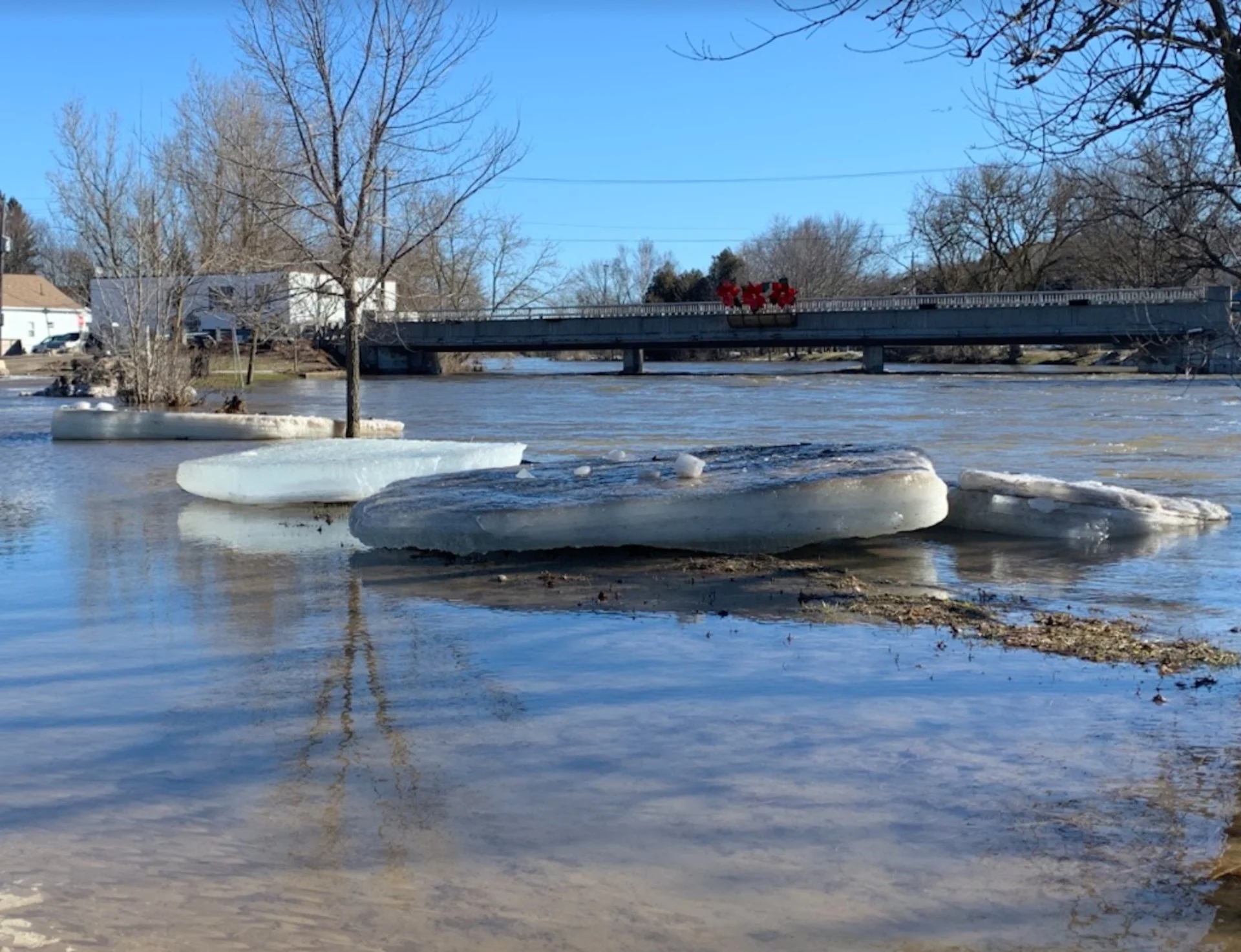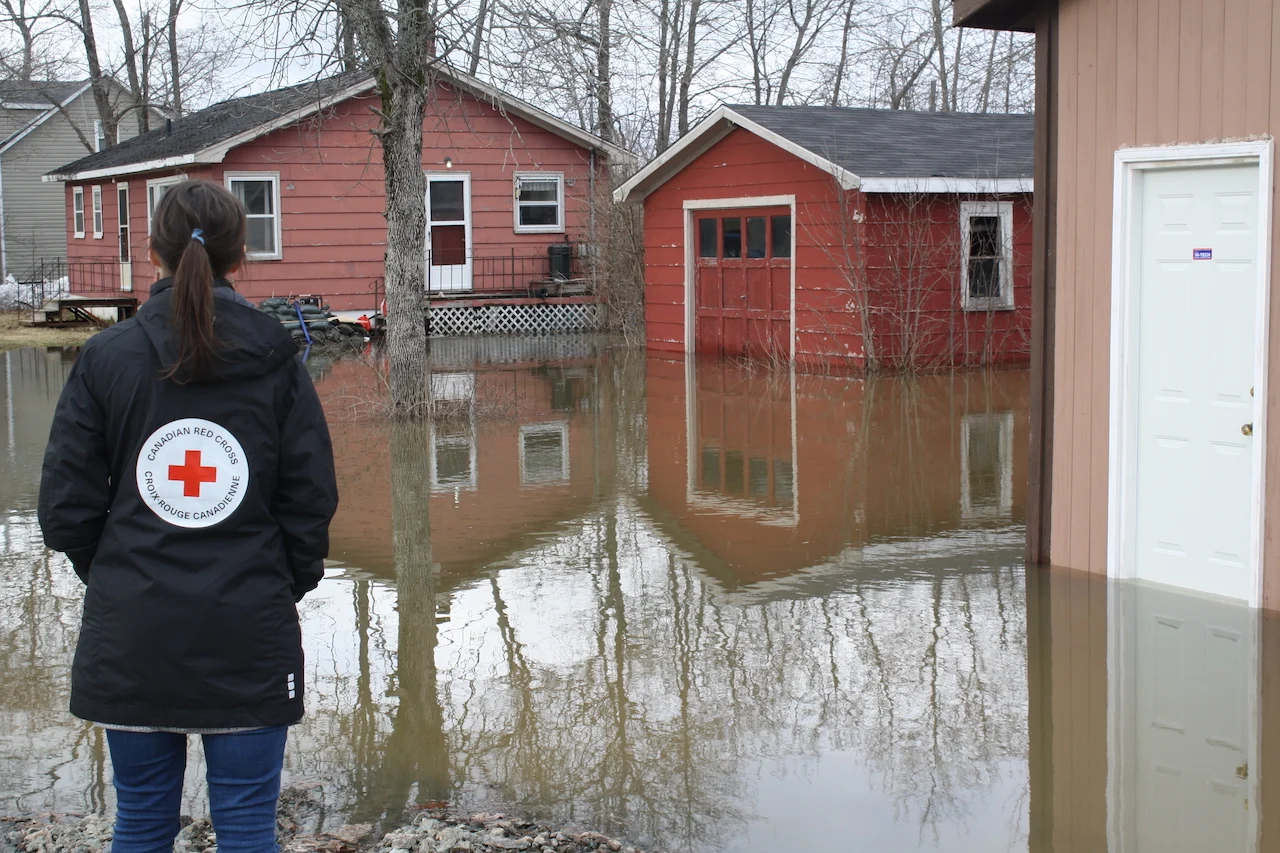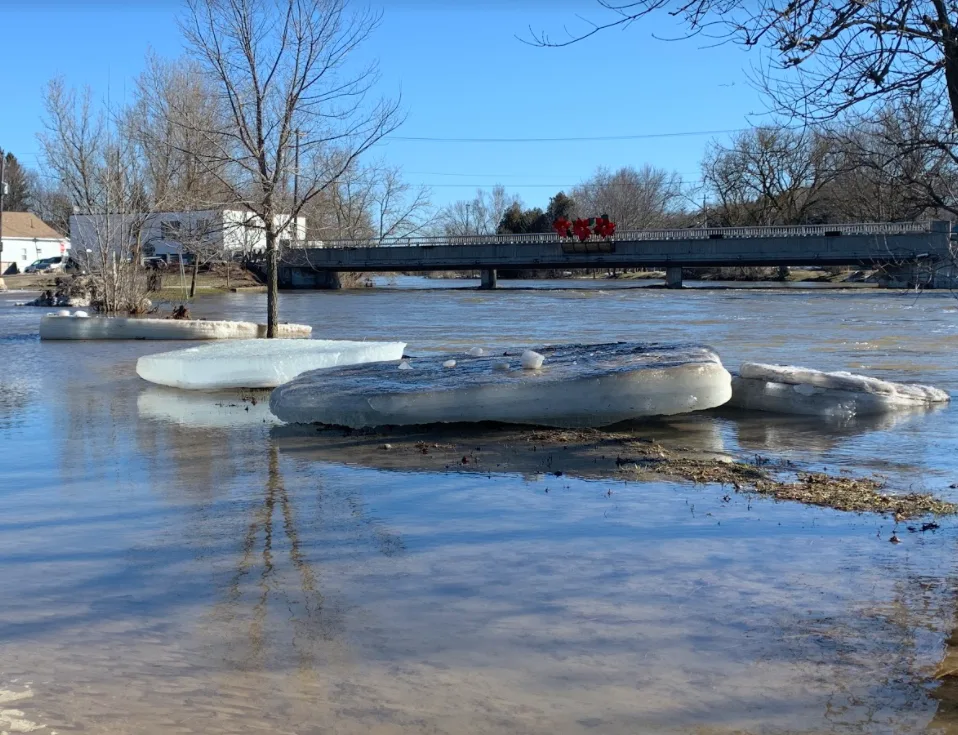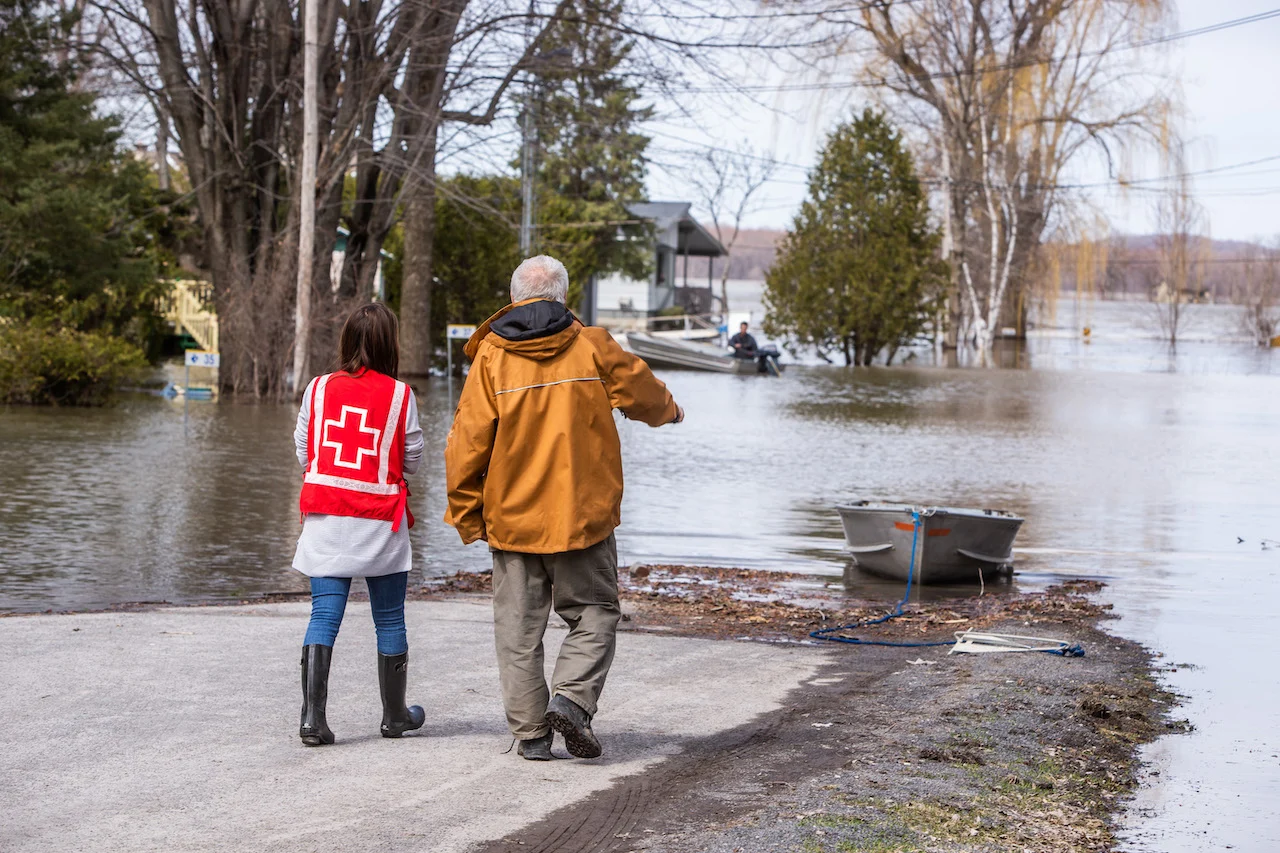
Canadians in flood-risk areas unaware, unprepared: Study
Recent study indicates there are a high number of Canadians in high-risk flood areas that don't have any protection and don't even know the threat exists.
Many Canadians are not only unprepared to deal with the flood threat in high-risk regions, they're also not even aware of the potential.
That's according to a 2020 survey conducted by the Partners for Action at the University of Waterloo and The Co-operators, which found that 94 per cent of people who live in a known flood-risk area are unaware they do. As well, the study found that 57 per cent of Canadians do not have flood coverage -- highlighting a significant gap between flood awareness and preparedness.
SEE ALSO: Spring flooding still a concern with Great Lakes water levels
The survey reached out to 2,500 people across Canada, those who live in designated flood-prone areas that are most vulnerable to severe and recurrent flooding.
And those who are aware of the flood-risk in their community, only about 30 per cent have taken action to protect their homes, according to Shawna Peddle, program director of sustainability for The Co-operators.

Flooding in New Brunswick. Photo: Allie Murchison/Canadian Red Cross.
RESULTS UNCHANGED FROM 2016 STUDY
The study was also conducted in 2016, with similar results as to the most recent one. Peddle was surprised the results remain unchanged in those four years.
“Really it shows us a concerning lack of awareness of Canadians of the risk for flooding,” said Peddle. “We had hoped that there would have been a change in the awareness, but we’re not surprised."
She added, "We’re hoping people will find more and more references in different places they can go to for information about their flood risk."

Grand River Valley in Ontario. Photo: Mark Robinson.
Peddle said the reason for the lack of awareness could just be a lack of a personal experience from a flood event.
“You may live in a high-risk zone, but nothing’s ever actually happened to you personally. People might not just be aware. It may not be on their radar, so it might be a risk to them,” said Peddle.
PREPARE, PREVENT, PROTECT
The Co-operators and Partners for Action data indicates that the average cost of claims for flood damage to a property is $43,000, but in some cases it could be much higher. With more people working and studying from home, the impact of basement floods could jump due to the presence of high-end electronic equipment and additional furniture in home offices.
With the study, Peddle wants people to prepare, prevent and protect. Canadians can find their risk area and preventative measures, here.
“Once more information is out there, and people are actually able to find their homes on a map and search for their own information, that’s when they will move into the next step, which is prevention and then into protection," said Peddle. "(It will) really make a difference in the level of flood risk across the country.”

Rigaud, Que. flooding. Photo: Joe Alvoeiro/Canadian Red Cross.
Those looking for cost-cutting measures to protect their home can complete a few simple tasks around their property.
Among them are removing snow piles near the foundation of the home and around window wells, removing debris from eaves, gutters and municipal storm drains, as well as ensuring your downspouts drain away from the foundation, Peddle said, noting you can get reasonably priced extenders at any hardware store.
In addition to that, she recommends people to talk to an insurance provider to determine the threat to their home, whether or not they have flood protection, and if not, if getting coverage is possible.
"We need to be aware of what our risk is, that the risk 20 years ago when we first got our home may not be the same as it is today. And it may not be the same risk 20 years from now,” said Peddle.
Thumbnail courtesy: Allie Murchison/Canadian Red Cross.
Find Nathan Howes on Twitter.











